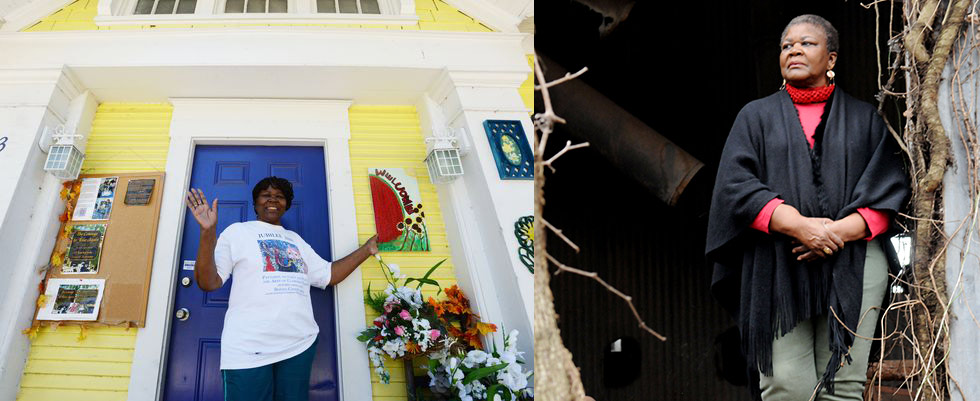Bertha Cooper Harris is a senior citizen Louisiana folk artist who recently completed her autobiography. She did not seriously undertake art until after she turned 65. The public reception to her art has been both gratifying and inspirational. However Bertha still has a great deal to offer not just in art but to the lives of all who her story and art touches.
In the small section of the south, where she was raised, many conditions had not changed much since the end of the Civil War when she was growing up. Tenant farmers and black farm families were practically owned by the family plantations where they worked. Escape from this bonded servitude was exactly that. Many families were always in debt to the plantation store or the owner. Her family was unique in that her grandparent’s family owned their own land. However it did not make them exempt from conditions of those around them. And certainly Bertha’s life may have been a snapshot of history in many respects.
Bertha’s struggles to advance in a world where she felt she had little control against forces of bigotry, sexual discrimination and harassment is parallel to struggles that existed throughout the country — only the names and places were different. Her journey to overcome these forces was often a struggle for survival. The story of this struggle should assist those who struggle today with the complex values and apparent glass ceilings in life and the work place.
Not only has Bertha survived, she has blossomed as an artist with an understanding of her responsibility to help others who continue in bondage. Bertha’s art and compelling story of struggle and survival is a tribute to the resiliency and character of southern women, both black and white.
In the fall of 2011 Bertha’s art received a first true recognition on a broader stage. The major award at the Red River Revel and the sale of her first large painting propelled Bertha to undertake a serious retelling of her story in this biography,The Courage to Rise Again, and in her expanded artistic works.









